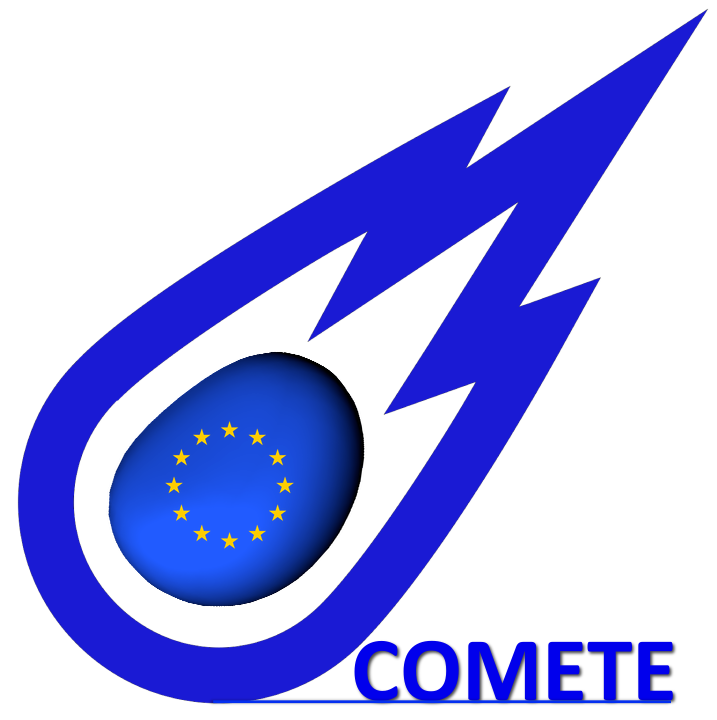IMP-PAN Gdansk
Click HERE to vist local website (opens new window)The Institute of Fluid Flow Machinery, Polish Academy of Sciences, Gdansk is the second largest research institute of the Polish Academy of Sciences. The Institute employs 200+ people, half as research staff, including 25 professors (full or associate) and 40 researchers. The doctoral school involves about 30 PhD candidates. The Institute's mission is energy conversion in flow. IMP PAN Gdansk is active in the fields of fluid mechanics, multiphase flows, thermodynamics, aerodynamics, plasma applications, laser measurement techniques, machinery dynamics, tribology and diagnostics of energy production machinery. The ESR will work on theoretical and numerical aspects, which require the use of an in-house computational code on SPH, and will have access to large-scale national HPC infrastructure (PL-GRID, ICM Warsaw).
TU Wien
Click HERE to vist local website (opens new window)The Vienna University of Technology (TU Wien) currently offers a number of MS/BS/PhD degrees in Architecture, Engineering, Computer Science, Economics, Technical Chemistry, Technical Mathematics, Technical Physics, Geomatics and Business Informatics. The number of enrolled students is 28000+. The University is actively involved in student and staff exchange projects with universities within the EU and is currently engaged in close collaborations with several universities from Eastern Europe and other non- EU countries. The University also participates in research projects at national and international level. The ESR will work in the Institute of Fluid Mechanics and Heat Transfer, which offers many research facilities, infrastructures and equipment, including a computational laboratory with specific competences in multi-scale simulations of turbulent dispersed two-phase flows with access to HPC facilities; laboratory facilities for multi-scale measurement and imaging of multi-phase flows and microfluidic flows, as well as aeraulic and acoustic testing (wind tunnel). Heavy investments in new computational and experimental facilities are currently under way.
University of Udine
Click HERE to vist local website (opens new window)The University of Udine will be the coordinating beneficiary. The University currently offers a number of MS/BS/PhD degrees in Agriculture, Economics, Engineering, Law, Foreign Languages, Education, Humanities, Medicine and Surgery, Veterinary Science and Mathematical, Physical and Natural Sciences. The number of enrolled students is 17000+. The University is actively involved in student and staff exchange projects with universities within the EU and is currently engaged in close collaborations with several universities from Eastern Europe and other non-EU countries. The University also participates in many research projects at national and international level. The ESR will work in the Multiphase Flow Laboratory, of the Department of Engineering and Architecture, which offers a broad range of research facilities, infrastructures and equipment, including a computational laboratory with specific competences in multi-scale simulations of turbulent dispersed flows and access to HPC facilities for massively parallelized calculations. Facilities for measurement and imaging of multi-phase flows, microfluidic flows and turbo-machinery are also available.
EHP
Click HERE to vist local website (opens new window)Euro Heat Pipes is a leading European player in Aero-Space Thermal Control Subsystems based on the use of Two Phase technologies with more than 35 years of heritage in orbit and on severe environment applications. Created in April 2001, by spinning off, with the support of the Université Libre de Bruxelle, the Heat Pipes and Two Phase Systems department of SABCA, this 100% European company can count on the experience of a highly qualified team and processes. Euro Heat Pipes organization is based on strong production/testing and quality approach with successful partnership on Loop Heat Pipes (LHP) and thermal BUS systems with all European Aero-Space tier 1 and tier 2 actors. Marketing leader for the two-phase products and systems with more than 70% of the European market share on Institutional satellites and with an objective of acquiring more than 25% of the European telecom market (Eurostar 3000 recurring Heat Pipes) or Constelation Heat Pipes (Oneweb). With more than 2.600m² of specialized facilities, Euro Heat Pipes organization addresses full in-house capabilities (from breadboard up to small-medium production series) based on a staff of 53+ highly qualified engineers and technicians: Design, Manufacturing, Quality, Qualification and acceptance tests.
ESTECO
Click HERE to vist local website (opens new window)ESTECO is an Italian independent technology provider delivering first-class Software Optimization and Uncertainty Quantification solutions aimed at perfecting the simulation-driven design process. With 20 years of experience, the company supports leading organizations in designing the products of the future, today. ESTECO mission is helping companies excel across this innovation journey by providing them with leading-edge technology to master engineering complexity and accomplish the shift to agile product development. ESTECO smart engineering suite brings enterprise-wide solutions for design optimization, simulation data management and process integration and automation with the aim of helping companies excel across this innovation journey and accomplish the shift to agile product development. Over 300 international organizations, including Cummins, Embraer, FIAT, Ford Motor Company, JLR, Honda, Toyota, Whirlpool, VOLVO - have chosen ESTECO to consolidate specialized expertise, streamline teamwork and boost product development across a wide spectrum of industrial sectors. Founded in 1999, the company is headquartered in Trieste (Italy), with offices in Michigan (USA), Pune (India) and an international network of channel partners. ESTECO provides direct access to a large number of software developers (e.g. ANSYS) and end-users (e.g. those listed above).
